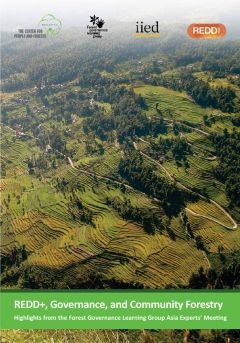Focal point
Location
Mission
Our mission is to build a fairer, more sustainable world, using evidence, action and influence in partnership with others.
Who we are
IIED is one of the world’s most influential international development and environment policy research organisations. Founded in 1971 by economist Barbara Ward, who forged the concept and cause of sustainable development, we work with partners on five continents. We build bridges between policy and practice, rich and poor communities, the government and private sector, and across diverse interest groups. We contribute to many international policy processes and frameworks, including the Intergovernmental Panel on Climate Change, the Millennium Ecosystem Assessment and the UN conventions on climate change and biological diversity.
What we do
IIED carries out research, advice and advocacy work. We carry out action research — generating robust evidence and know-how that is informed by a practical perspective acquired through hands-on research with grassroots partners — and we publish in journals and maintain high research standards. We advise government, business and development agencies, and we argue for changes in public policy. We focus on bottom-up solutions, stay open to flexible, adaptable solutions and are marked by a tradition of challenging conventional wisdom through original thinking.
Resources
Displaying 271 - 275 of 367REDD+, Governance, and Community Forestry: Highlights from the Forest Governance Learning Group Asia Experts' Meeting
How can REDD+ benefit from the lessons of community forestry?
The Forest Governance Learning Group brought together 12 experts from India, Indonesia, Nepal, Philippines, Vietnam, and the UN-REDD Programme to discuss how community forestry strengths and shortcomings can influence the further development of REDD+. This booklet summarizes their responses to nine timely questions and provides recommendations for future steps.
Le développement rural dans un monde en pleine urbanisation
L’urbanisation est souvent considérée comme ayant des effets néfastes sur le développement rural. En fait, c’est tout le contraire. Les espaces ruraux et urbains, les populations et les entreprises sont étroitement liés et on peut dire avec certitude qu’il n’y a pas de développement rural sans développement urbain et inversement.
Land deals in Africa: What is in the contracts?
Includes how much land is being acquired, and by whom?; over the heads of local people: who are the parties to the deal?; the economic disequilibrium of the contract: what resources, in exchange for what?; what safeguards for local people and the environment?; discussion. Drawing on legal analysis of 12 land deals from different parts of Africa, discusses the contractual issues for which public scrutiny is most needed, and aims to promote informed public debate about them.
Biomass energy: Another driver of land acquisitions?
As governments in the global North look to diversify their economies away from fossil fuel and mitigate climate change, plans for biomass energy are growing fast. These are fuelling a sharp rise in the demand for wood, which, for some countries, could outstrip domestic supply capacity by as much as 600 per cent. It is becoming clear that although these countries will initially look to tap the temperate woodlands of developed countries, there are significant growth rate advantages that may lead them to turn to the tropics and sub-tropics to fill their biomass gap in the near future.
Rural development in an urbanising world
Rural development and urbanisation are often seen as competing, but in most cases are intimately linked. It is essential that policies re? ect and support the many positive links between rural and urban areas, enterprises and people. This in turn requires a better understanding of urbanisation processes and the role of small towns.








